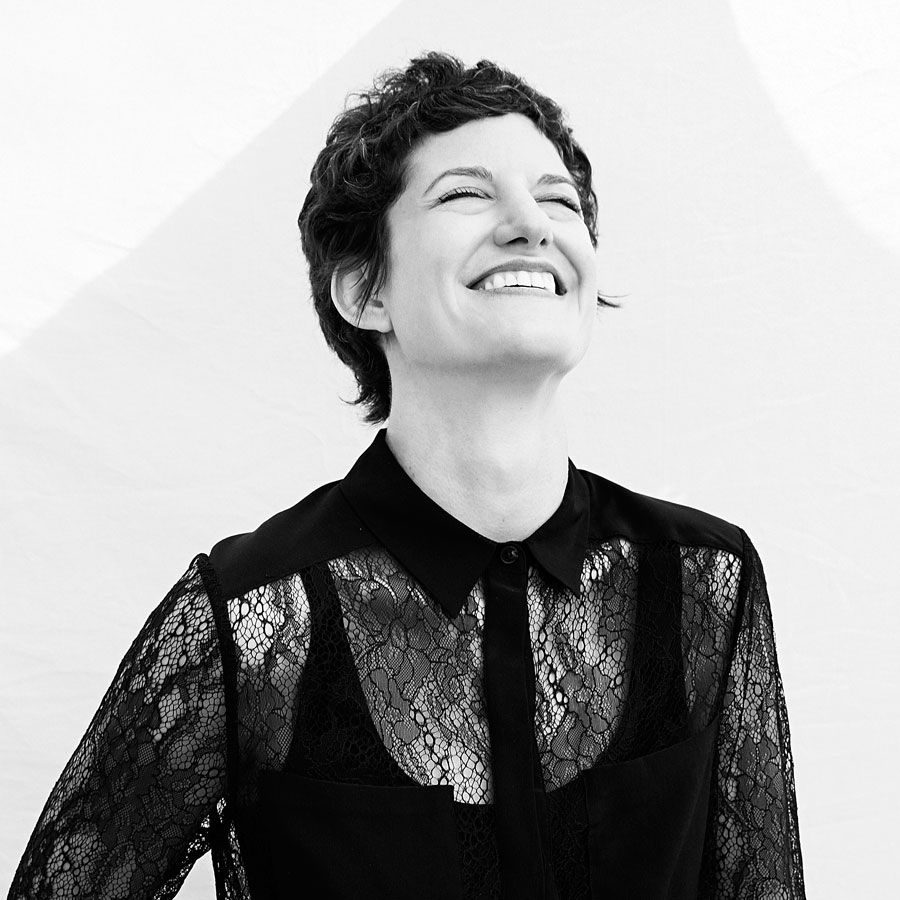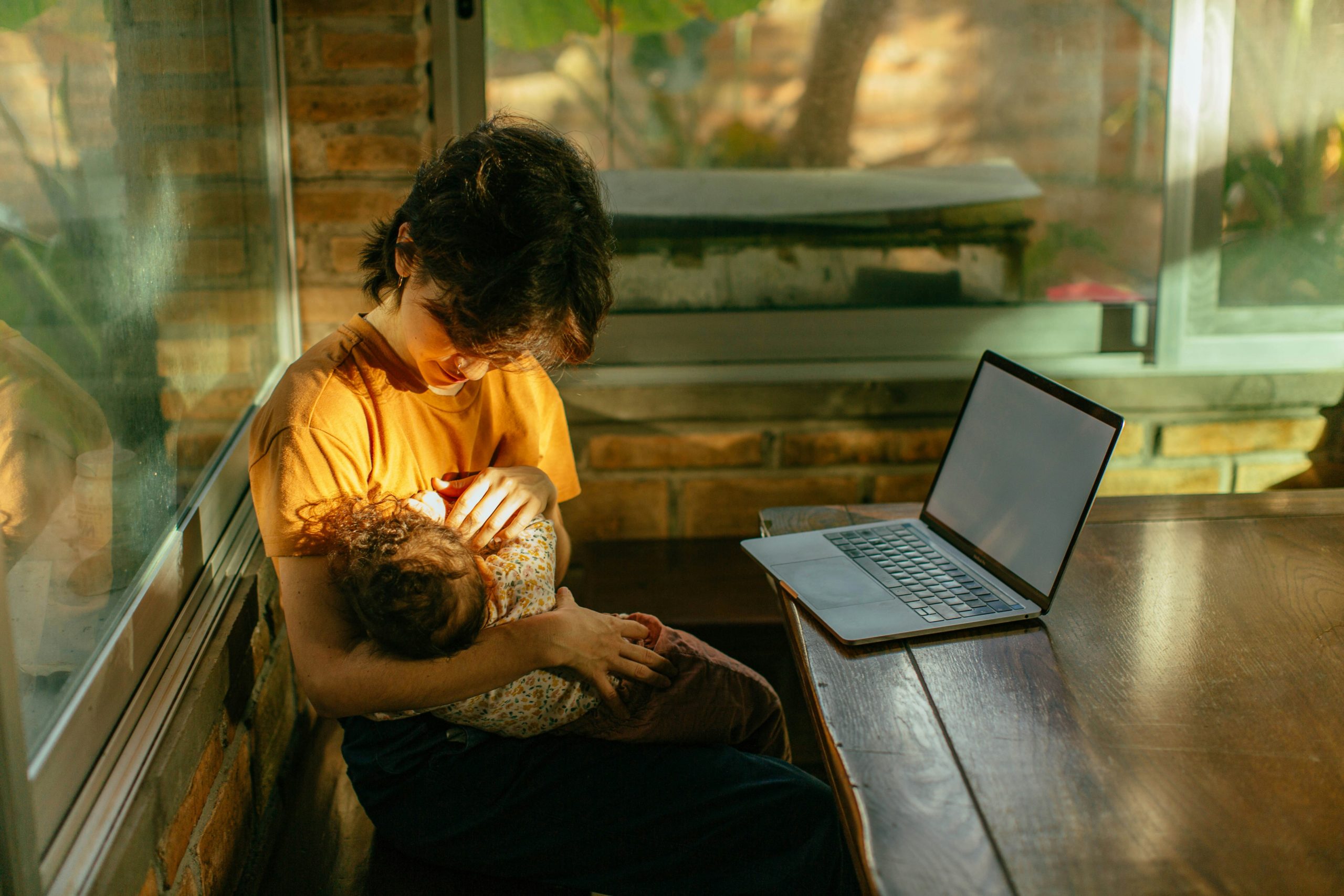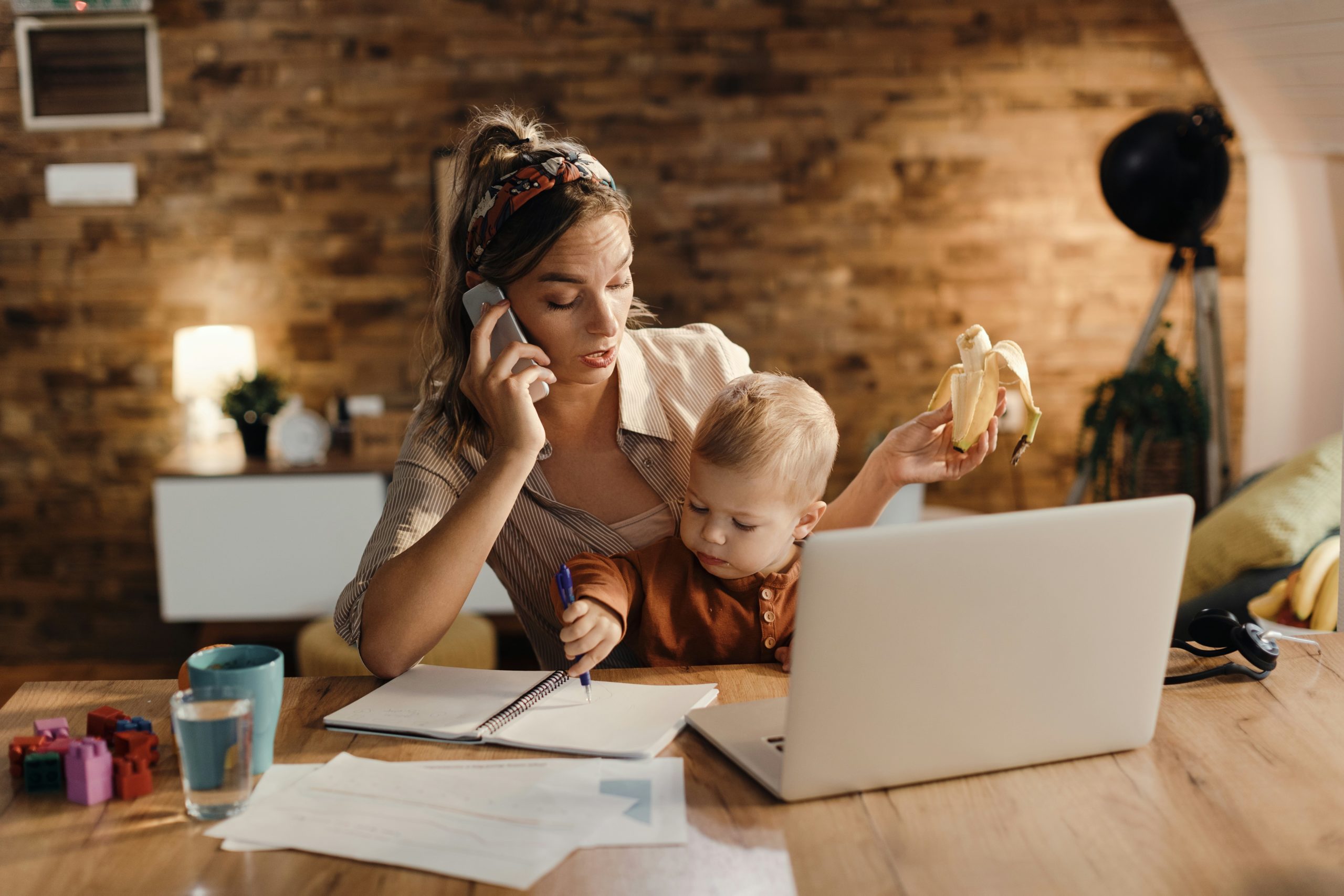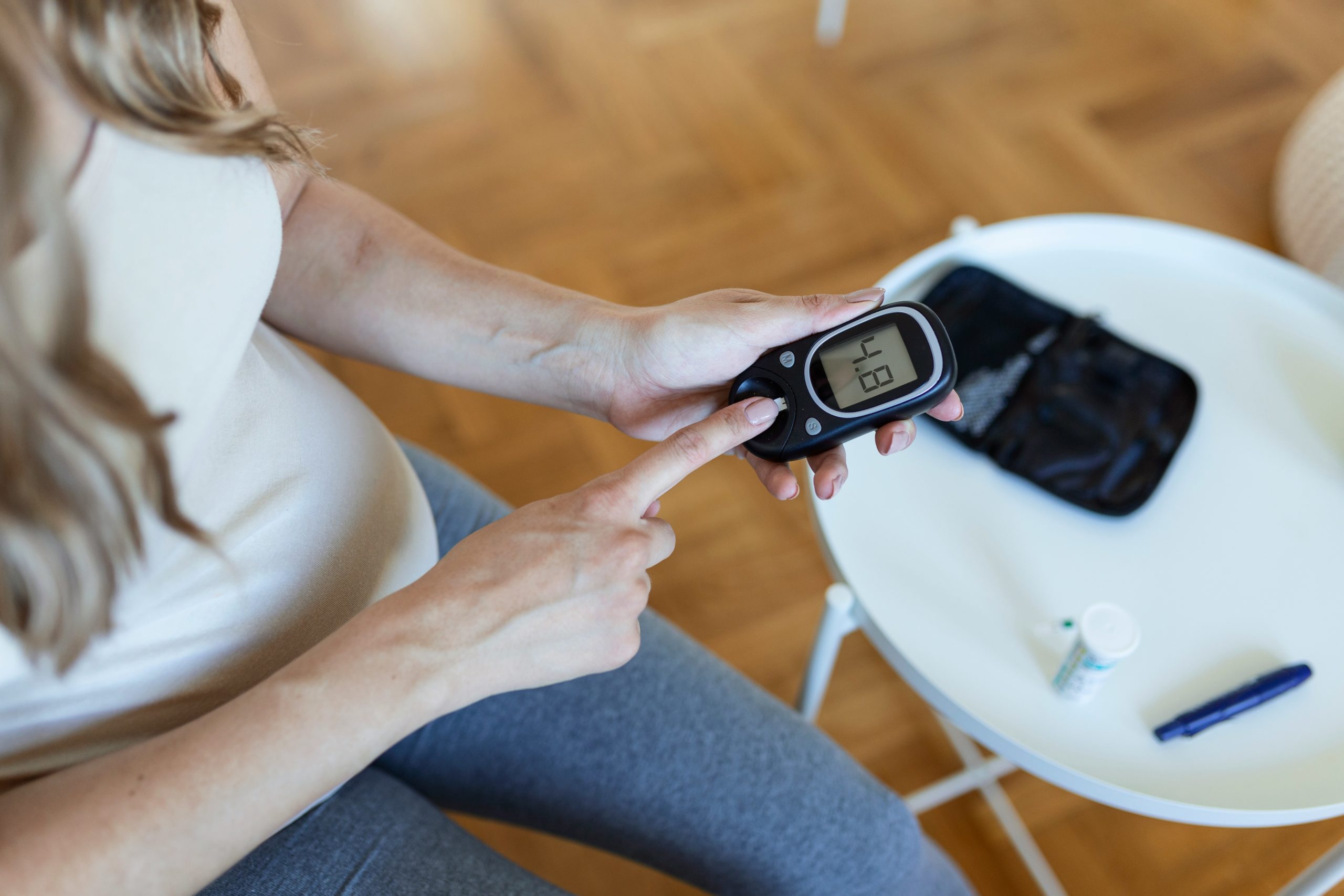My life seemed ideal—I was working for a prestigious consulting firm, traveling business class every week to exciting locations, leading projects at the cutting edge of technology and launching innovative new businesses designed to support customer needs.
The indicators of an unhealthy work environment, especially for women, were certainly present: one colleague had repeatedly pushed out her wedding and family planning due to work pressure, and another had postponed a surgery to remove uterine fibroid cysts multiple times in order to be staffed on “ideal” projects.
Not to mention the complete lack of females in leadership, inappropriate “jokes” about menopause or the patronizing from a power-seeker on our team when the rest of us took a moment to emotionally lament a certain president being put into power (and the almost certain revocation of women’s rights that would follow).
But this atmosphere was just par for the course, I told myself. Truthfully, the job was far better than other in-house roles I had held.
My life had been almost entirely defined by my career in my 20s and 30s, and I had never seriously considered having a family. I had also never really stopped to assess whether my 80-100 hour work weeks were actually serving me—at least not until those decades of chronic stress decided to give me a wake-up call.
For several months at the aforementioned job, I had been leading a particularly toxic project, and mistook the expense-account dinners and heavy partying as a valid stress release. But underneath all those thankless nonstop demands and glamorous cover-ups, my body was having a breakdown.
The first signal that something was wrong was my sudden inability to visually focus on the presentation in a conference room. My 20/20 vision became blurry in an instant, without warning.
Because I was on a work trip in Europe and “the client came first,” I just continued to plug along, and wrote it off as a temporary issue or an inevitable waning of my eyesight. I had other physical discomforts, but as illogical as it was, I found it easy to blame them on other potential factors: jetlag, a heat wave without air conditioning—or the inability to eat my typical portion of fruits and vegetables in the locally sourced (meat-and dairy-heavy) Alpine restaurants.
On a short break in between trips, I got my vision tested and paid out of pocket for expensive glasses and contact lenses. Phew, I thought, problem solved. I could see again! Just in time for some executive pitches!
But why, then, had it become almost impossible to get through my evening three-mile run? And why were all the words coming out of my mouth an incomprehensible jumble that in no way matched the clearly-formed sentences in my brain? And why did I have to pee all the time, but could never quench my thirst?
To make a long story short(er), I had developed Type 1 Diabetes (T1D), as an adult, in my late 30s.
T1D is an auto-immune disease, which means my body was attacking itself, specifically the beta cells of my pancreas. Yes, it’s chronic (there’s no cure). And yes, it requires constant monitoring, insulin delivery and insane diligence to maintain… and stay alive.
The diagnosis thrust me into a deep depression and identity crisis. I didn’t know this new version of myself. To me, the disease signaled a loss of independence and a reliance on pharmaceutical and insurance companies for the rest of my life. But I did what I knew how to do: continue to push through, without properly tending to myself.
It took another stressful overseas work trip with frighteningly high and low blood sugar levels to finally force me to take a leave of absence from my job. Once I got my Western medicine sorted out (at least initially), I knew I also needed to seek out Eastern remedies.
I booked a month-long stay at an ashram in India, enrolling in a healing program for people with chronic illnesses. That pause allowed me to breathe, to meditate, to rest and to organically form the most beautiful and supportive “sisterhood” of new girlfriends.
I learned so much about chronic stress and the dangers of constantly existing in a cortisol-and adrenaline-fueled state with an over-activated central nervous system. I gained access to my body and its insights, including tapping into the calming and restorative benefits of my parasympathetic nervous system.
I also decided that I… wanted to become a mom.
In fact, this energy must have been so present that after a session of evening chanting, a woman co-leading the program who didn’t know me at all came up to me and told me of the powerful vision she had just had of me as the most loving mother of a cherished daughter.
The time I spent at the ashram gave me space to ponder some core existential questions.
Why had I always put so much pressure on myself?
Why was I constantly putting up with unhealthy situations?
What was I gaining from working all of my waking hours?
What was I sacrificing by being so career-focused?
What was actually important to achieve?
Were there better ways to make an impact?
Wasn’t there more meaning in life?
My own parents had started a family while they were in college, sacrificing the freedom many young adults get to experience. They did so without regret, always reiterating that their happiest years were the ones spent parenting three children.
What might it mean to focus my attention away from self, towards the magic of another human being? What was possible if I applied my need to constantly learn and be challenged beyond professional ambitions and towards parent and child development? What would it feel like to love unconditionally and to honor emotion?
While I’ve always been known to make quick decisions and move swiftly into action, in retrospect it was fairly amazing how suddenly my perspective shifted and how open I felt towards something to which I had never really given much thought.
I had zero awareness of the road I was about to go down, but I knew it felt right to pursue motherhood. I knew it in my body. In my being.
At the time, I didn’t know that I would lose my grandmother unexpectedly that same year. I was the first grandchild, and from my early years well into adulthood, we had stayed close. I thought about how meaningful our relationship had been, how much her family meant to her and how empty her life might have been without us.
These reflections compelled me even further to become a mother, and I set off on my fertility journey as a single mom (more about that here). I also decided that my child’s name would honor my grandmother.
A century ago, having T1D was a death sentence. “Half of the people who developed it died within two years; more than 90% died within five years,” per an article in Harvard Health Publishing. And forget about having a baby—pregnancy was ruled out if you had Type 1 due to high rates of maternal and perinatal morbidity; if you did happen to get pregnant, termination was commonplace, according to a study published in the North American Journal of Medical Sciences.
Through healthcare advances including insulin therapy, people with T1D are now able to live much longer and give birth. However, pregnancy scares remain, and the disease makes life a whole lot more complicated. (It should be noted that gestational diabetes, typically a temporary condition with its own set of challenges and risks, is a completely different disease than T1D.)
While it was definitely a journey involving multiple inseminations and a miscarriage, I successfully conceived via in vitro fertilization (IVF) and went on to have a healthy pregnancy.
Thankfully, I worked with incredible fertility clinics and reproductive health professionals on my path to conception. Throughout my pregnancy, my endocrinology and maternal-fetal medicine teams regularly monitored risk factors and my baby’s development. And while it felt like a full-time job to keep my blood sugar in a constant near-perfect range during pregnancy, I never questioned the effort since it was for the sake of my daughter.
After 24 hours of labor including three hours of active pushing followed by an emergency cesarean section, my daughter was born! I fell in love immediately, knowing that she was the best and most important decision I had ever made.
I nearly went into a diabetic coma two times after welcoming my daughter into the world, which I later found out was due to the postpartum hormonal changes that lead to a drastic drop in your insulin needs. Despite the fact that healthcare providers are more concerned with the unborn baby than the postpartum mom, I figured out (with the support of my parents) how to both keep both my daughter and myself alive.
Since her birth, I made the mistake of getting caught up in the seeming importance of a job one more time, but when that position abruptly ended, I took it as a sign to come back to my center.
To come back to the love exploding out of me.
To come back to the beautiful stillness, softness and smells of the most awe-inspiring baby before me.
To come back to my body, breathing and being.
To come back to my intuition, tenderness and the nourishing I knew I needed.
For me, being a mom feels like the most extraordinary and natural way of being, and the paramount component of my identity.
Of course, sometimes I get those twinges of envy and nostalgia when I see business class travelers luxuriously lounging in the front of the plane as I cram into economy class. But I know the reality of that lifestyle.
I also mourn the carefree ability to eat a French baguette without worrying about an insane blood sugar spike. But I don’t miss my former disconnection from my body.
Fortunately, all I really need now to feel complete is to hug my daughter, see her laugh, observe how much she is learning, or hear her exclaim “Mama” when she’s missing me. Who would have known that the joyous vision shared by that instructor in India several years before would come true?
Managing my diabetes will always be a struggle, but I’ve learned to be more trusting and attuned to what my body is telling me. (And if you were curious, my eyesight did return to normal after I started taking insulin and got my blood sugar levels down.)
Career-wise, I’m transitioning into a new role that is rewarding, purposeful, and flexible. As a coach, I’m working with individuals (often parents) to help them achieve more balance, sanity, happiness, confidence, and self-care.
Regarding those colleagues I mentioned earlier, after leaving the consulting company, both women had the space to plan and enjoy their weddings. One set off on a challenging but successful road to becoming a mom, and the other began her IVF journey after having her fibroids removed.
And as for the power-seeker, well, he climbed his way to the leadership team (eye roll).
Author
-

Nicole Lenzen is a coach, consultant, facilitator, and mother, specializing in guiding women through transformative journeys into parenthood, leadership, and entrepreneurship. She advises companies on organizational and parental leave strategies and leads collaborative learning and development workshops. She is a single mom by design, raising a curious young adventurer. Nicole finds joy in city exploration, remote camping, and sharing yummy meals with loved ones. Follow Nicole on Instagram. and visit her website.




